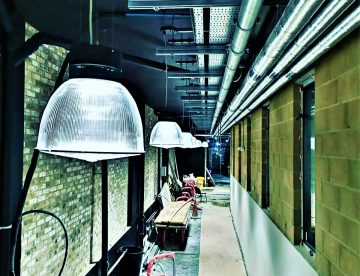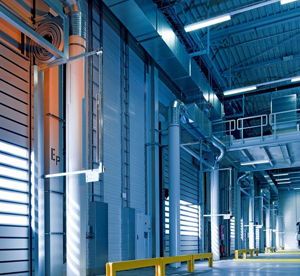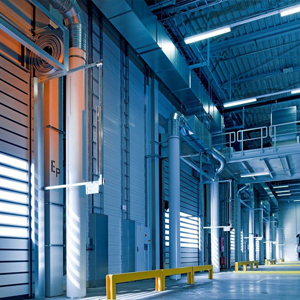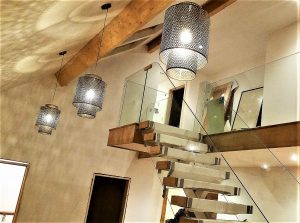Image Description: An industrial facility adhering to electrical codes.
Electrical systems are the backbone of modern commerce and industry. In the bustling city of London, where businesses and industries thrive, electrical safety and compliance with regulations are paramount. In this article, we’ll delve into the world of electrical codes and regulations that businesses and industries need to follow to ensure safety, efficiency, and legal compliance.
The Importance of Electrical Codes and Regulations
Electrical codes and regulations are not mere guidelines; they are legally binding standards established to safeguard lives, property, and the environment. In the context of commercial and industrial settings, adherence to these codes is not optional but a fundamental requirement.
- Safety of Personnel and Property:
Electrical codes prioritize the safety of personnel and property. In London’s bustling commercial spaces and industrial facilities, strict adherence to these codes is essential to prevent electrical accidents, fires, and damage to equipment. Compliance helps ensure that electrical systems are designed, installed, and maintained to minimize risks.
- Legal Compliance:
In the United Kingdom, electrical regulations are outlined in the IET Wiring Regulations (BS 7671). Compliance with these regulations is not only a safety measure but also a legal requirement. Failure to adhere to electrical codes can result in fines, legal liabilities, and, in some cases, business closures.
Key Electrical Codes and Regulations
Let’s explore some of the key electrical codes and regulations relevant to businesses and industries in London:
- IET Wiring Regulations (BS 7671):
The IET Wiring Regulations, commonly referred to as the 18th Edition Wiring Regulations, is the cornerstone of electrical safety in the UK. It sets the standards for electrical installations in all types of buildings, including commercial and industrial spaces. Compliance with these regulations is mandatory, and they are regularly updated to reflect the latest safety requirements and best practices.
- Electrical Safety Act 2020:
The Electrical Safety Act 2020 is another crucial piece of legislation aimed at enhancing electrical safety in England. It introduces mandatory electrical safety checks in privately rented properties, further emphasizing the importance of electrical safety in commercial and residential spaces.
- Health and Safety at Work Act 1974:
In industrial settings, the Health and Safety at Work Act 1974 is a cornerstone of safety regulation. It places obligations on employers to ensure the health, safety, and welfare of employees and the public. Electrical safety is an integral part of these obligations, and non-compliance can lead to severe penalties.
- Emergency Lighting Standards:
For businesses, compliance with emergency lighting standards (BS 5266) is essential. These standards dictate the installation and maintenance of emergency lighting systems in commercial and industrial spaces to ensure safe evacuation during power failures or emergencies.
- Hazardous Locations:
Industries dealing with potentially explosive atmospheres, such as chemical or petrochemical facilities, must adhere to regulations governing hazardous locations (ATEX Directive). This includes using specialized equipment designed for such environments to prevent explosions and fires.
Compliance: A Shared Responsibility
Compliance with electrical codes and regulations is not solely the responsibility of electrical contractors or facility managers. It is a shared responsibility among stakeholders, including business owners, operators, and employees. Here’s how you can ensure compliance:
- Regular Inspections: Conduct regular electrical inspections and audits of your commercial or industrial facility to identify and rectify compliance issues.
- Training and Certification: Ensure that your staff, especially those involved in electrical work, are adequately trained and certified to handle electrical systems safely and in compliance with regulations.
- Documentation: Maintain accurate records of electrical installations, maintenance, and inspections as evidence of compliance with electrical codes.
- Collaboration with Experts: Collaborate with qualified electricians and electrical engineers who have a deep understanding of electrical codes and regulations.
Conclusion
In the vibrant city of London, where businesses and industries flourish, electrical safety and compliance are non-negotiable. Understanding and adhering to electrical codes and regulations is not just a legal obligation but a commitment to ensuring the safety of personnel, property, and the environment.
By staying informed about the latest regulations, conducting regular inspections, and investing in training and maintenance, businesses and industries can thrive in a safe and compliant electrical environment, contributing to the continued success of London’s dynamic business landscape.
Remember, electrical compliance is not just about following the rules; it’s about protecting lives and livelihoods in one of the world’s most exciting and industrious cities.



















